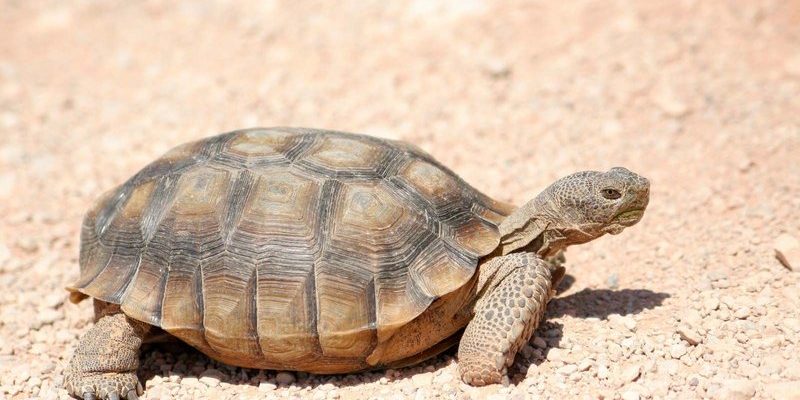
Tortoises, with their impressive longevity and slow-paced lives, often seem like the wise old sages of the animal kingdom. They aren’t just cute; they’re vital players in maintaining the balance of their habitats. Think of them as nature’s gardeners, helping to shape the world around them while providing a home to countless other organisms. If you’re curious about how these reptiles contribute to their ecosystems, you’re in the right place.
Understanding Tortoise Habitats
Tortoises can be found in diverse habitats, from arid deserts to lush wetlands. Each environment offers unique challenges and resources that shape the way these creatures live. For example, desert tortoises have adapted to survive in hot, dry climates, using their burrows to escape the heat. Meanwhile, aquatic tortoises thrive in freshwater environments, relying on ponds and rivers for food and shelter.
These habitats are themselves interconnected ecosystems. Tortoises contribute by affecting the soil composition and vegetation around them. Their burrowing activities aerate the soil, making it easier for plants to grow. Without tortoises, some areas might struggle to sustain plant life, which could, in turn, impact the entire food web.
Tortoises are also known to migrate in search of food. This movement can spread seeds and help maintain plant diversity. Think of tortoises as little moving seed dispensers, inadvertently helping plants to flourish wherever they wander!
Tortoises as Herbivores
Did you know that most tortoises are strict herbivores? They munch on grass, leaves, fruits, and vegetables, playing a critical role in controlling plant populations. This grazing keeps overgrowth in check, which is vital for the health of their habitats. If tortoises didn’t do their part, certain plants could become too dominant, leading to a lack of biodiversity.
By trimming back various types of vegetation, tortoises help create open spaces for other animals to thrive. Think of it like a well-kept garden. When you prune certain plants, you give others room to grow.
Moreover, tortoises often consume fruits and flowers, which leads to seed dispersal. When they eat, they contribute to a process known as *seed predation*, where seeds are released into new areas through their droppings. This helps introduce different plant species into various regions, promoting a healthy ecosystem.
Soil Health and Nutrient Cycling
Tortoises are more than just grazers; they also play a significant role in nutrient cycling within their ecosystems. When they eat and digest plant material, they produce waste that is rich in nutrients. This waste acts as a natural fertilizer, enriching the soil in their habitats.
Healthy soil supports robust plant growth, which is crucial for many other organisms that rely on these plants for food and shelter. Let’s say the tortoise population decreases; the soil quality might diminish, leading to less vegetation, which then affects the insects, birds, and other animals that depend on those plants.
In this way, tortoises help establish a balanced ecosystem. Healthy soil leads to healthy plants, and healthy plants support a diverse range of wildlife. It’s a beautiful chain reaction that highlights how interconnected life really is.
Influence on Other Species
You might be wondering how tortoises affect other animals directly. These creatures are often considered a keystone species, meaning their presence has an outsized impact on their environment. For instance, many animals depend on tortoise burrows for shelter. Small mammals, reptiles, and even insects find refuge in the abandoned burrows of tortoises, providing them with safety from predators and harsh weather.
Moreover, tortoises can also be a food source for certain predators. Birds of prey and carnivorous mammals might take advantage of a tortoise when the opportunity arises. This highlights the tortoise’s place in the food web, where they contribute not just through their actions but also as a resource for other wildlife.
By hosting other species within their habitats and serving as a food source, tortoises help to sustain various populations, contributing to the overall biodiversity of their environments.
Conservation Challenges and Efforts
Sadly, tortoises face numerous threats today, which can disrupt their crucial role in ecosystems. Habitat loss due to urban development, agriculture, and climate change puts pressure on tortoise populations worldwide. Additionally, illegal wildlife trade and poaching have significantly impacted some species, pushing them closer to extinction.
Conservation efforts are essential to ensure that these magnificent creatures continue to thrive. There are various organizations working tirelessly to protect tortoise habitats and promote awareness about their importance. Some of these efforts include creating protected areas, conducting research, and engaging local communities in conservation activities.
Every little action counts! If you love nature, consider supporting conservation initiatives that focus on protecting tortoises and their ecosystems. You might not wear a cape, but even small contributions can make a big difference in their survival.
The Future of Tortoises and Their Ecosystems
As we look ahead, the future of tortoises and their ecosystems depends largely on our choices today. By understanding their vital roles, we can advocate for their protection and ensure that they continue to thrive. Every tortoise contributes to a larger story about ecological balance—one that’s been evolving for millions of years.
Imagine walking through a forest filled with vibrant life, where each creature plays its part. Tortoises, with their slow and steady approach, remind us that every species has a role to play, no matter how seemingly insignificant. If we prioritize conservation, we can work towards a future where tortoises not only survive but thrive in their natural habitats.
In conclusion, the tortoise’s role in its ecosystem is undeniable. From maintaining soil health and plant diversity to providing shelter for other animals, these creatures weave together the fabric of their habitats. Next time you hear about tortoises, remember their vital contributions—they’re nature’s unsung heroes, and they deserve our respect and protection.

